Last Updated on July 30, 2021
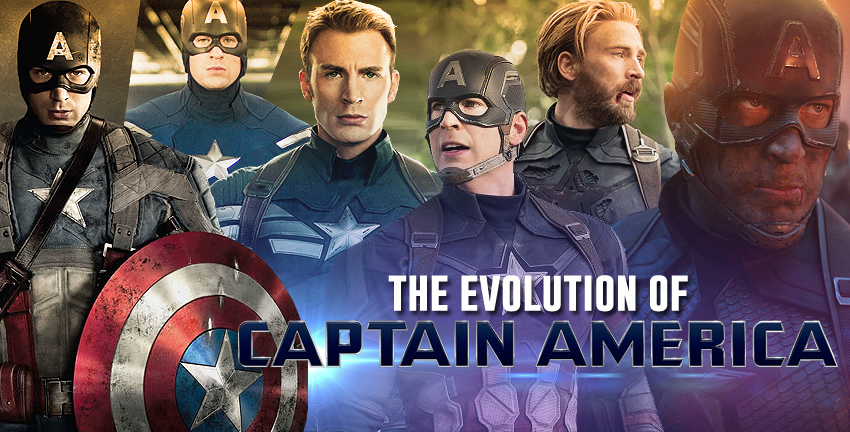
Captain America. Beacon of hope. Symbol of freedom. Sentinel of Liberty. A Soldier, through and through. Created in 1941 by Joe Simon and Jack Kirby, Captain America aka Steve Rogers has been a mainstay in the world of superheroes ever since, representing, at first, the Everyman that wanted to do and be more in a time of war; a superhero who was also a Soldier, wanting nothing more than to serve his country and sock Adolf Hitler in the jaw. His very creation was a political one, which gave Simon a means to explore his concerns over what was happening in Nazi Germany (this was prior to the U.S. entering WWII). Despite what some may think, Captain America was not welcomed by all, receiving his share of hate mail and dissatisfaction from many readers. However, for most, he represented not only America, but the ideal America, the light that shows the way, no matter the political discourse or upheaval. Captain America always did the "right" thing.
Fast forward to 2011, as the Marvel Cinematic Universe, then with the success of 2008's IRON MAN, the sorta success of 2008's THE INCREDIBLE HULK and 2009's THOR, welcomed Cap into their world. Director Joe Johnston (THE ROCKETEER) was charged with telling the origin of Steve Rogers as it would fit in the MCU, casting former Human Torch Chris Evans in the role. Sebastian Stan was cast as his best friend and partner, Bucky Barnes, while Haley Atwell would take on the role of Peggy Carter.
———-
"I can do this all day." (CAPTAIN AMERICA: THE FIRST AVENGER, THE AVENGERS)
When we first meet Steve Rogers, he's attempting to enlist in the Army, among a bunch of more able-bodied candidates. He's disqualified due to asthma (a legit military disqualifier), but we find out that this isn't the first time he's attempted to enlist. Rogers is determined, one way or another, to do his part. After all, his best friend, James Buchanan "Bucky" Barnes has already enlisted and serving. But, why is this so important to Rogers? Is it duty? Is it to prove something? Why is he so intent on fighting in World War II? As he tells Bucky: "There are men laying down their lives. I got no right to do any less than them. That's what you don't understand. This isn't about me." Oh, but it is.
Ultimately, it's in his blood. Steve Rogers, in all his selflessness (a hallmark of military service) is simply wired this way. His upbringing has humbled him, but also instilled a sense of duty, a sense of place. As someone who has struggled his whole life to belong, to want to be a part of the world he lives in, it makes sense that Rogers would be pulled to military service. He knows what it's like to be someone in need, someone that can't fight back and it fuels his desire even more more. This is the quintessential piece of Steve Rogers, both in the films and the comics, which Abraham Erskine, the scientist who created the Super Soldier Serum, recognizes immediately.
"The serum amplifies everything that is inside. So, good becomes great. Bad becomes worse. This is why you were chosen. Because a strong man, who has known power all his life, will lose respect for that power. But a weak man knows the value of strength, and knows compassion."
Beyond his desire to serve and, more importantly, to do the right thing, Rogers is also a romantic. He's enamored with the strength and beauty of British Agent Peggy Carter, who is also just as taken with him. She sees in him what Erskine sees; a good man with a good heart. Beyond that, unflinching in his will to do the right thing and rise above what's expected of him as a weak and frail young man. It's Cap's first love and a torch he bears immediately upon being unfrozen and lost in time. Peggy is not only the one that go away, but the one that anchors him to the time and place he came from (and, arguably, belongs).
Once the serum has worked its way through his veins and Rogers reemerges with the physical ability to fight as strong as his heart could will, Captain America is born. The film follows the lineage of that name, however, as he is used initially as a kind of sideshow to sell war bonds in an overly spangly uniform (at first looking perfectly in-line with his original comic book suit), that goes through a quick alteration for his first combat outing to save Bucky and his unit, who were captured by Red Skull and Hydra. It's a clever start to what his uniform becomes, especially as we watch it evolve from film-to-film. Like Iron Man, Cap goes through quite a few upgrades throughout The Infinity Saga with both large and small additions eventually bringing him to his most modern incarnation.
The shield, as well, is another symbol that can't be overlooked and director Joe Johnston set a great precedent in making it every bit the physics-defying extension of Cap's arsenal and a distinct part of his identity. As with the character traits of Steve Rogers, the costume and shield of Captain America is an essential part of him and thankfully producer Kevin Feige and Johnston make this paramount in showcasing the character. Had they downplayed or subdued what makes Cap who he is I think we'd have a much lesser character. However, that's one of the greatest strengths of the MCU as a whole; despite some minor (and occasionally major) alterations, these characters, especially Cap, retain what makes them who they are, which all begins on the page. It's these details that helped form such a perfect union of comic to film in the MCU and Captain America is a shining example.
Teaming up with the Howling Commandos, we see a montage of Cap fighting Nazis throughout the war, living up to the ideals he sought for so long, finally afforded the ability to do so. In many ways, this is exactly the world in which Steve Rogers wants to live in. The super powers aren't super powers at all; they're merely a means for him to serve and that's exactly what he does, leading Soldiers into war, one victory after another, although not without sacrifice. We see Cap and Bucky fighting side-by-side and even get a few bits of foreshadowing, including Bucky sniping an enemy and later holding the shield while firing at Hydra baddies (a nod to the fact that Bucky indeed becomes Captain America at one point in the comics). It's to note that when we see Cap, Bucky and The Howling Commandos in action there are many moments where they aren't doing the comic book thing of just subduing their enemy; they are killing them. This is a reality of war, obviously, and a credit to the filmmakers for not shying away from the actuality of their situation as Soldiers at war.
In terms of his main antagonist, The Red Skull has always been Cap's greatest nemesis and, although Hugo Weaving did a fine job of bringing him to life, he never lived up to the cunning and diabolical enemy we saw from the comics. Serving as the antithesis to Rogers in terms of how they both handled the Super Soldier Serum, The Red Skull is a mostly one-note baddie that never rises above his simplistic roots. That would be saved, oddly, for AVENGERS: INFINITY WAR.
THE FIRST AVENGER saw Cap choosing to take down a stealth plane full of bombs by crashing it into arctic waters, thereby making the ultimate sacrifice for his country. In many ways, it's the perfect ending for Steve Rogers. He not only served his country and stood by his ideals. He makes plans with Peggy over the radio to rendezvous for "that dance", something that would become a recurring theme for the character. It ultimately becomes a symbol for Rogers; that dance, so far from his reality, is the only peace he could see for himself when the war is over. When he's unfrozen and quickly escapes, finding himself in modern times, the one thing on his mind is the date he missed, which serves as a metaphor for the character himself. "I had a date," is true of Steve completely. His date was in the 1940s and now he's officially a "man out of time".
"Whatever happens, stay who you are. Not just a Soldier, but a good man."
———-
THE AVENGERS opened the doorway for Cap to embrace, once again, his role as a Soldier. What else would Nick Fury, or the world, for that matter, do with him? It's a natural fit and blending in his morally straight, rigid demeanor with that of the team, makes for a hell of a dynamic. Following the lineage of the comics, the unfrozen Cap takes on the role of leader to the team, even as each member struggles to figure out where they stand on the newly-formed team. The obvious pushback comes from Tony Stark, offspring of Howard Stark, whom Cap worked with extensively in his past life. But, Tony is a different man than his father, even as much as they're the same, and the pissing match between the two is immediate. It's also what draws them together, realizing that they're both up to the task, either in ego or humility, to fight the battles that no one else can fight.
While Cap is sharing the spotlight in THE AVENGERS, his trajectory from THE FIRST AVENGER is felt. His adjustment to the modern world is ever-present and Nick Fury seems to understand exactly what he needs. "Trying to get me back into the world?" Steve asks while working over some boxing bags. "Trying to save it," says Fury. That's as calculated a statement as any. Fury knows Rogers. He knows that the one that that will get Cap back in the fight is to simply give him one. And throughout the film we see Rogers embrace the mission, embrace his role, without hesitation or doubt. In the end, he's simply transitioning from one war to the next, working with a cast of colorful characters that help support his mission. While he butts heads with Stark, the two also form a bond, like any soldier on the battlefield, and push forward in defeating their common enemy (in this case, Loki and the Chitauri and, to a larger extend, Thanos operating from the shadows).
There's a sequence during the Helicarrier attack where Cap picks up an M4 rifle and starts using it against his attackers. This is indicative of his "fresh off the fight" mindset. To him, he's not that far off from charging bunkers with guns and explosives against Hydra and Nazis, so his inclination to pick up a gun and use it is absolutely within his character at the moment. It's also to note that it's the LAST time he picks up a firearm in the MCU, as he eventually learns how to harness his super powers (and shield, for that matter) without taking lives, if it can be avoided (although, it can also be argued that he's not exactly going out of his way to save his enemies from death either).
THE AVENGERS provides Captain America with something he needed desperately; a win. The Avengers win the battle against Loki and, as a team, save the world. For Cap, this is exactly the moment he needed in order to embrace his place in the world and winning this victory with his new allies is every bit akin to him forming those same bonds with his troops in WWII. The Avengers become his family by way of war and that speaks to Cap more than anything else could. Being the leader of The Avengers, it turns out, is the best acclimation to the new world he could've asked for.
———-
"I'm with you to the end of the line." (CAPTAIN AMERICA: THE WINTER SOLDIER, AVENGERS: AGE OF ULTRON)
Embracing his role as a Soldier in modern times becomes second nature to Cap. When we next see him, leading the STRIKE team for S.H.I.E.L.D. as a covert ops team leader, Steve Rogers has advanced as a Soldier in multiple ways. With his new "stealth" costume, which subdues the red, white and blue, Cap is now fully immersed in the day-to-day life of being a full-time Soldier. However, he's now faced with a new dilemma; it's easy being a Soldier, but it's hard being a human being in a world he doesn't understand. Catching up on all the things he's missed, Cap slowly feels that he's moving forward in his life, yet even as he is, we see that he's still stuck in the past. It turns out, his WWII crush, Peggy Carter, is still alive, although on her death bed and suffering from memory loss. Peggy happened to remarry, supposedly to a man that Cap had saved in WWII (he's never named and, perhaps with good reason, which we'll get to). "For as long as I can remember I just wanted to do what was right. I guess I'm not quite sure what that is anymore. And I thought I could throw myself back in and follow orders, serve. It's just not the same," he tells Peggy. "The world has changed, and none of us can go back. All we can do is our best, and sometimes the best that we can do is to start over."
This becomes a hell of an ironic statement as we get to AVENGERS: ENDGAME, but at the time it feels like Peggy telling Steve to move on, which is the kind of tough love he needed at that moment, especially as he starts to get close to another "Carter" that being Sharon Carter aka Agent 13, who is Rogers' longest-running love interest in the comics (up to the current book). There's a romantic tease here, as well as some serious sexual tension between Cap and Black Widow throughout, who represents the epitome of the modern woman to him. Elusive, confident, self-preserving and mysterious, Black Widow is, ultimately, too much for Rogers. In so many ways they're perfect for one another, but she is also a character that is compromised morally, which is something Rogers could likely never resolve. Still, she pushes for him to take that leap, not necessarily with her, but with someone else, be it Sharon or some other female. Cap, however, is still stuck in the past with every woman who comes his way being compared to a certain British spy that captured his heart some 70-odd years ago.
Starting over, it seems, also involves Cap bonding with another Veteran, Sam Wilson AKA Falcon, who runs a Vet group that talks PTSD, which draws Cap in, who is suddenly having a crisis of faith, so to speak. While he certainly knows how to be a Soldier, Steve Rogers has never figured out who he is outside of that. Now, unleashed on the future, he isn't quite sure that he's in the right place, not just time-wise, but employment-wise. Sam, it seems, represents a Soldier that suffers the same troubles as Steve, albeit from a much later war. This is almost a comfort to Cap and a source of tremendous bonding and trust between the two men. In many ways, it lives up to the age old saying that "war never changes". For Cap, he can almost take solace in that.
"On your left."
Love life aside, the biggest challenge to Rogers in THE WINTER SOLDIER comes in the form of the government he has chosen to serve, almost blindly. When Nick Fury is "assassinated" by the mysterious warrior known as The Winter Soldier, Cap suddenly finds himself embroiled in a cover up that finds the nation he is serving compromised by an age-old enemy; Hydra. As it turns out, the side he chose was the one he's fought from the beginning and in the simplest terms, Cap ain't having it. Of course, this gets twisted even further when Cap discovers that his childhood best friend and comrade, Bucky Barnes, is not only alive, but also a brainwashed assassin working for Hydra. This revelation compromises Cap to his very core. You think it would be easy for him to dutifully take out Bucky, but given their history, their bond and their friendship, it's the hardest thing he's ever had to face. That said, it's an easy decision. Cap's conscience can only dictate one action; save Bucky.
It's not just that Bucky was his best friend, but he's also the closest link (next to Peggy, of course) to who he was. Bucky, no matter how brainwashed, knows Steve. He knows Steve's mom, his neighborhood, his friends, his life. Given that Cap is now thrust into a world he's never known, wouldn't it make sense that he'd take every opportunity to save the one person alive that actually knew him? In a away, it's self preservation. In another, it gets right to the core of who Steve Rogers is; a man trying to do the right thing. But, at what cost? As The Winter Soldier, Bucky has killed many, including people that will upset the balance of Cap's world in the years to come. Still, this is an unflinching man. Steve Rogers, achingly, begrudgingly, stubbornly, will always stick to the moral compass pointing true North.
By the end, Cap is dead set on ending S.H.I.E.L.D., an organization rotted from the inside with Hydra, and saving his best friend. He accomplishes both missions, which makes for a hell of an incentive to stay in the fight. Victory is the greatest inspiration and Cap, despite the mixed finale, remains dedicated to saving his friend and, in the process, continuing his mission as an Avenger, even if that means operating outside of the law.
———-
The next time we see Cap is in AVENGERS: AGE OF ULTRON, where he's no longer playing ball with faux S.H.I.E.L.D. agents, but fighting the good fight with his teammates that have more than proven their worthiness to fight alongside. Iron Man, Thor, Hulk, Black Widow, and Hawkeye, these have become Cap's family (as well as both Falcon and War Machine). We even get a scene where everyone is trying to pick up Thor's hammer, Mjolnir, with no progress save for Rogers, who seemingly moves it upon first attempting to pick it up. This is a source of much debate as we get to the events of AVENGERS: ENDGAME, but is it really that much of a surprise that Steve Rogers would be worthy enough to wield that hammer? (For comics-accurate reference, check out the final chapter of "Fear Itself" in the comics).
"I really miss the days when the weirdest thing science ever created was me."
The mission in Age of Ultron is less a step forward for Cap as it is for Iron Man, but it opens up a new dilemma for Cap, as Stark argues vigorously for his A.I. creation as a "suit of armor around the world" whereas Cap is almost threatened by something that would take his war (i.e. his purpose) away from him. The biggest scene here, which serves as foreshadowing for the struggle in CIVIL WAR, is between Stark and Rogers, while chopping wood at Clint Barton's home. Stark is attempting to justify his action in creating Ultron, by means of creating something that would dismantle the need for The Avengers. Rogers, who is fresh off Fury and Hydra/S.H.I.E.L.D. trying to do the same thing with the Helicarriers in THE WINTER SOLDIER, knows better: "Every time someone tries to win a war before it starts, innocent people die. Every time."
After Ultron is defeated, it seems that Stark has relented the push for an A.I. controlled peacekeeper in favor of an even bigger expansion of The Avengers as they establish the New Avengers base, which is flourishing by the end. As Cap, Iron Man and Thor make some small banter, setting up a few threads for the future of The Infinity Saga, Cap and Stark talk about the future, with Stark saying that Cap could eventually have "the simple life", but Cap seemingly has resolved not to, saying, "I don't know, family, stability. The guy who wanted all that went in the ice seventy-five years ago. I think someone else came out."
———-
"So no matter what, I promise you, if you need us – if you need me – I'll be there." (CAPTAIN AMERICA: CIVIL WAR, AVENGERS: INFINITY WAR)
Now firmly established and operating under a worldwide net, CAPTAIN AMERICA: CIVIL WAR begins with Cap in full Avengers mission mode, very much like he was in THE WINTER SOLDIER, but this time operating under his own terms and leading a team of trusted superheroes, rather than shady S.H.I.E.L.D./Hydra agents. The death of innocents brings his world to a screeching halt, compounded by the reemergence of his old pal, Bucky Barnes, now accused of further loss of life. Cap, however, is still inextricably tied to the fate of Bucky, the one man alive who knows who Steve Rogers is, assuming he's not brainwashed by Hydra still. Either way, Steve isn't about to let Bucky be killed and that becomes a huge piece of the puzzle.
The other chunk is Stark easily accepting government control with what they call the Sokovia Accords, which places The Avengers under government control. But, Cap is no longer the dutiful soldier. He's grown beyond that, especially after the betrayal he felt in THE WINTER SOLDIER. Cap, ever the man to do what he feels is right, knows that blindly following orders is no longer the way. "I know we're not perfect, but the safest hands are still our own." The shift is already in place, however, and this immediately places Cap (as well as Scarlet Witch, Bucky, Falcon, Ant-Man and Hawkeye) at odds with Stark's half. For Rogers this is a new dilemma; choose to be a government-run Super Soldier and forsake his childhood friend or remain on the outskirts and do everything he can to save his best friend. At this point, it would be completely out of character for Cap to choose anything but the latter and with screenwriters Christopher Markus and Stephen McFeely, the trajectory is more than earned (after all, these guys have written all of his solo adventures).
Beyond that, Cap also suffers a major personal loss in Peggy Carter dying. He acts as a pallbearer and, for the first time, discovers that Agent 13 is actually Sharon Carter, niece of Peggy. This is a hell of a revelation (and then some as we get to ENDGAME) and she delivers a speech that speaks very much to Rogers' personality (and wholly reinforces why he and Peggy are meant to be) about compromising where you can and not compromising where you can't. Still, with Peggy gone and the sexual tension already in the air with Sharon, they share an awkward, long-awaited kiss. The only disservice of the moment comes in the fact that we never follow up with it afterwards, which is a shame given their rich history as a couple in the comics. Despite those that seem to want Cap to somehow be romantically linked to Bucky, a strange fan-fic fantasy that has no basis in who these characters are or have been from page or screen, Rogers' love for women with the last name Carter remains strong.
It's a fairly simple thing, despite the complexity that's layered upon this tale; Cap simply wants to do the right thing and follow his moral compass. It's his most endearing (and frustrating, for some) quality. Steve Rogers is unflinching. It's the term I constantly go back to with this character. He cannot be compromised. His code is all he has. It's all he's ever had. It's what he's based his entire life upon, well before he was injected with the Super Soldier Serum. "I can do this all day" he says to Tony in the throes of battle, defending his friend, whom we've just discovered killed Tony Stark's parents while brainwashed by Hydra. It's the same phrase he's uttered again and again. It's his mantra and, as cool or expected as it may be (it's essentially his "I'll be back"), it truly gets to the root of Cap. When he sets his sights on something he simply will not give up, no matter what. Tony learns this the hard way, no matter how betrayed he may feel. "If I see a situation pointed south, I can't ignore it. Sometimes I wish I could."
After a massive battle at the Berlin airport (which ended in Ant-Man, Hawkeye and Falcon captured) and a finale that saw The Winter Soldier without an arm (again), Cap dropped the shield and took care of his friend, leaving Tony broken and hurt, both mentally and physically. Once again, Cap was on his own, just as he was prior to joining the Army, and forging his own path. In many ways, as much as being part of an organization may have served his overall well-being, Cap seems at his best when he's living a life uncompromised. Still, in a letter penned to Tony at the end of CIVIL WAR, Rogers leaves the door wide open, in the way only he could, with a promise to always be there when he's needed.
———-
"If you wanna stand in our way, we'll fight you too." (AVENGERS: INFINITY WAR, AVENGERS: ENDGAME)
AVENGERS: INFINITY WAR has A LOT of moving pieces and for Cap, it's a small move on the chessboard. While he saves both Vision and Scarlet Witch early on, his biggest contribution here is a simple one; he's there to fight. This is base-level Cap in that regard and it works just fine for this part of the penultimate chapter of The Infinity Saga. In the end, it's a fulfillment of the promise he left with Tony Stark at the end of CIVIL WAR and he arrives in time to fight the larger threat of Thanos and his minions, even if it's a losing battle.
The real meat of Steve's final story (at least for this chapter of the saga) comes in ENDGAME, where he takes center stage in the biggest battle of their lives, jumping five years past the events of INFINITY WAR as he copes with what they've lost and, ultimately, how they can get it back. Cap is already accustomed to being a "man out of time" but now he's faced with a bigger conundrum in dealing with a new phase of the world where everything has been cut in half, quite literally. When Ant-Man is suddenly brought back from The Quantum Realm, Steve is given something that he felt was lost at that point; hope. For Captain America, that's more than enough to get back in the fight and he's the one that leads this charge, pushing Tony Stark (and Bruce Banner) to dive deeper into their potential to undo the wrongs that Thanos wrought upon them.
As a leader, this is where Cap excels. We've seen him plan and execute missions since THE FIRST AVENGER, giving a rousing speech that lights everyone's internal fire, leaving no room for failure. They win or they die and they do it together. Going back in time serves to bring Steve face-to-face with his past yet again and, for the first time since CIVIL WAR, he's confronted with the one that go away; Peggy Carter, alive and well and running S.H.I.E.L.D. in the late 70s. More than anything, this moment has a profound effect on Steve; it shows him what's possible and, although he doesn't dwell on it at the moment, it's placed in his reserves for access later.
With their mission seemingly accomplished and the clock rolled back on the death toll that Thanos dealt them five years prior, Cap, Iron Man and Thor, the original trinity, face-off against the purple-skinned brute in a last-ditch attempt to stave off his evil plan. While some may argue it's "fan service" (I call it "payoff"), we see Rogers wield Mjolnir in battling Thanos, which was teased way back in AGE OF ULTRON. While we know that Cap is unlikely to take Thanos out in a one-on-one battle, it's his steadfast tenacity to stay in the fight for as long as possible that makes this arc payoff so well. Beyond that, we are treated to Rogers delivering the line that's graced the pages of the comics hundreds upon thousands of times and has been teased since THE AVENGERS. It's a rousing, beautiful moment, compounded with his modern-day partner, The Falcon, uttering "On your left." as Cap's dream team is finally assembled. It's a truly heroic moment and having Cap at the center, leading the charge, is pure awesomeness.
"Avengers! Assemble."
However, as cool as the final battle is, it's the time travel back to put the stones in their proper place that makes for the most interesting, frustrating and compelling moment in Cap's arc across these films. With Stark out of the picture, it's up to Steve to set things right in the past and who better to trust with such a task? However, Rogers, having toiled for so long in the modern era and exposed to the power of the stones (and time travel itself), witnessing the possibilities, has bigger plans. Fortunately for everyone on Earth, Cap is not even close to evil, but, for the first time in his existence, he makes a selfish play that enables him, for once, the opportunity to find happiness beyond serving. He finds happiness in love and the only way that was going to happen (in the MCU version, anyway) was to go back to Peggy Carter.
Of course, this time travel expedition creates all manner of conundrums for audiences and we can speculate all day and all night about what was really possible and what wasn't over a fictitious non-scientific thing that simply doesn't exist (time travel), but I think that misses the point entirely. We often forget that these films are based on the comics medium and in the comics medium ANYTHING is possible, NOBODY stays dead forever and the limits are set from one creative team to the next. It's an infinite world of varying stories that read more like myth than anything else. Here, in the MCU's final chapter of The Infinity Saga, Cap explores a vast realm of possibility that, in truth, could be a whole other film saga in itself.
While he suddenly returns as a 90 year old version of himself and passes off the shield to The Falcon (another nod to the comics, as both Sam Wilson and Bucky Barnes have wielded the shield at one point or another), that doesn't necessarily mean that his story has been fully chronicled. While he was gone for five minutes in real-time, he was gone for a near lifetime otherwise. Can you imagine the adventures he had in getting those stones back, while also reconnecting with his long lost love in order to finally get that dance? It also begs the question if Rogers was always the unnamed man that Peggy married and makes his kiss with Sharon that much more awkward.
In the end, we witnessed a man who was born below average in physical prowess and above average in heart. He was, in many ways, the symbol of America, as a nation and, more importantly, as a people. His ideals stemmed from service to what he believed was right and remained unmoved, planted like a tree, in his fight to take out the bullies of the world. We witnessed his journey in becoming Captain America, embracing that identity and sacrificing himself for that which he sought to serve. Then, awakened from that sacrifice, he found a new dilemma, but the same fight. Steve Rogers may have been a man out of time, but he would never be a man without a mission. As a modern-day Captain America, Rogers found purpose in those around him and, like any soldier, fought for them, as much as for what he believed to be the right thing. Unflinching, unwavering. His character never deterred. And, while Chris Evans, who portrayed Cap from film to film, may exude his political feelings publicly, Steve Rogers was beyond it. It was never about a political party. It was about defeating bullies, no matter where they came from, and doing so without compromise. To the very end, Cap stood by those ideals, which is a testament not only to the character, but to the filmmakers that brought this character to life and never missed a beat in who he was. They were every bit as unwavering as Rogers in executing his onscreen journey, which will long be remembered as one of the best in long-form cinematic storytelling.
READ MORE:


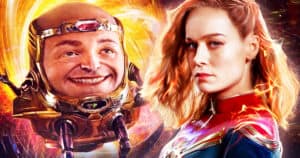
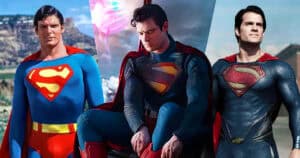
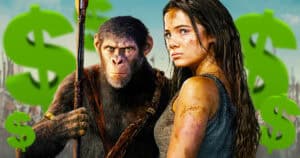
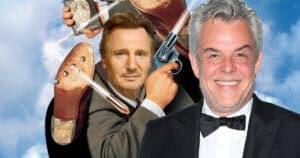
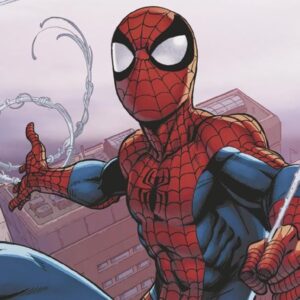
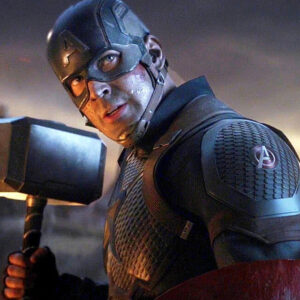
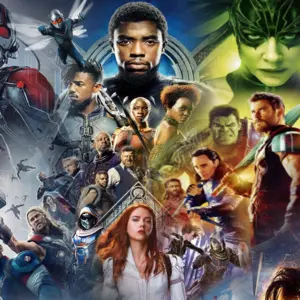
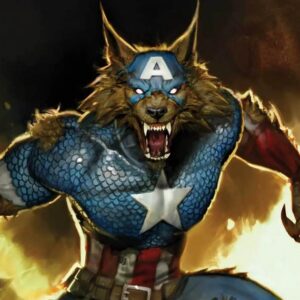
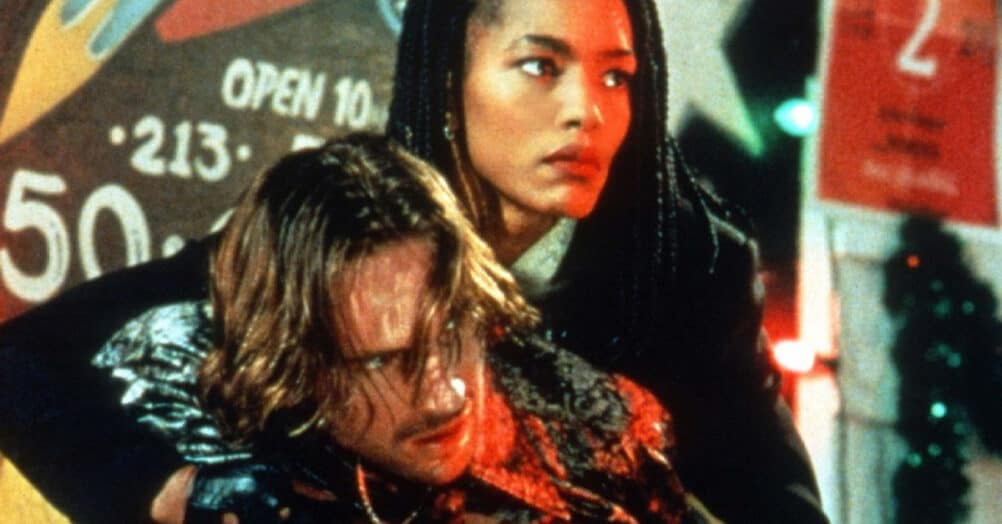
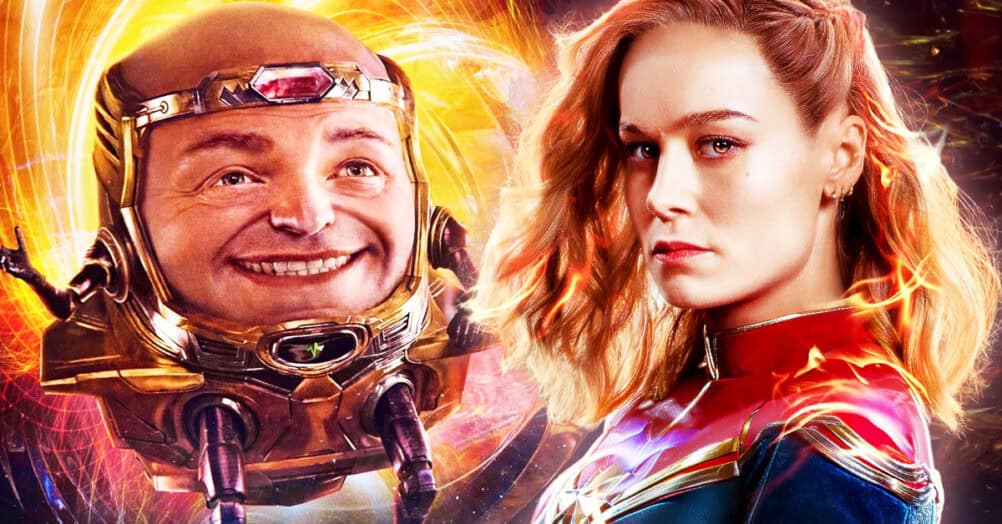
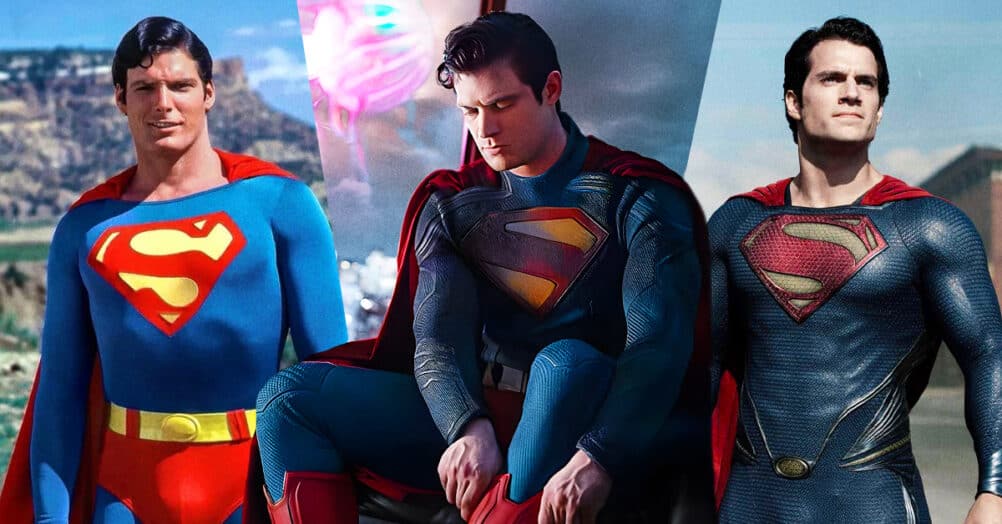
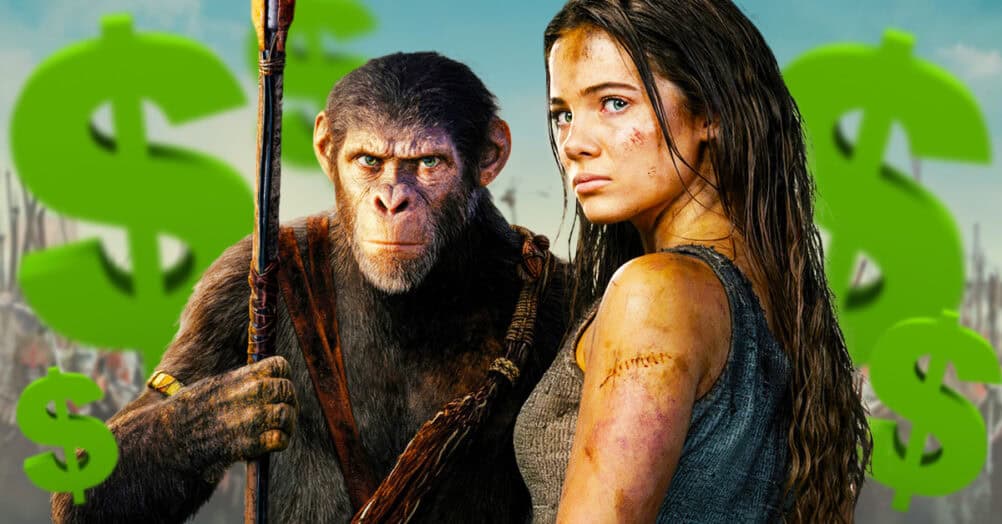
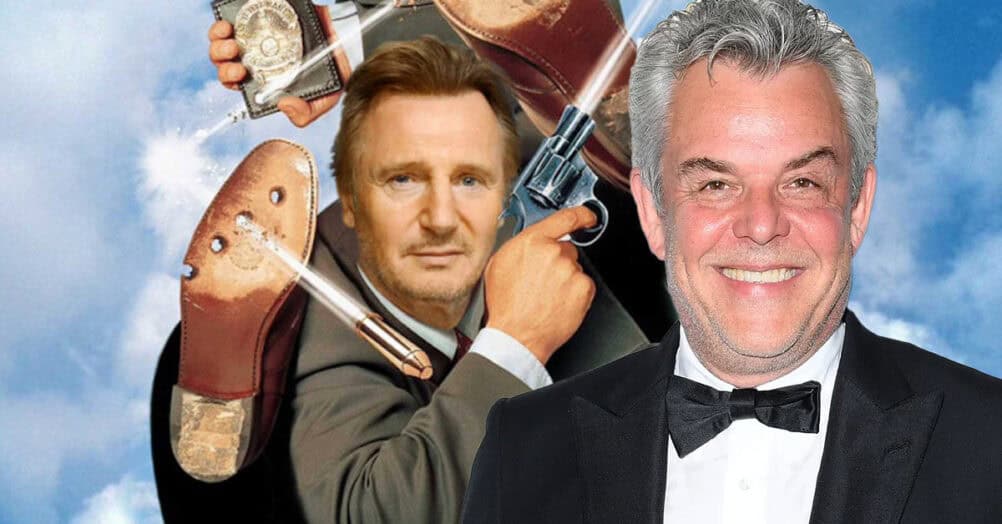
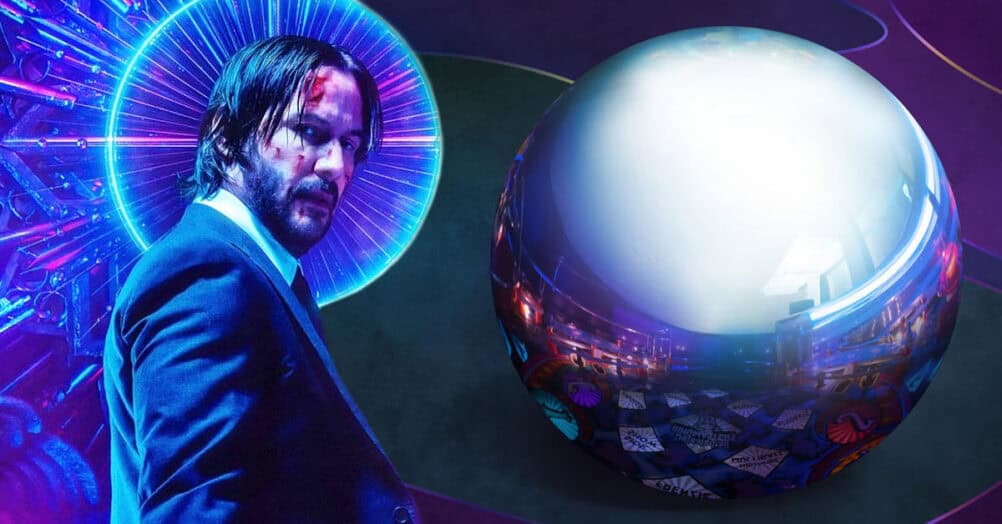
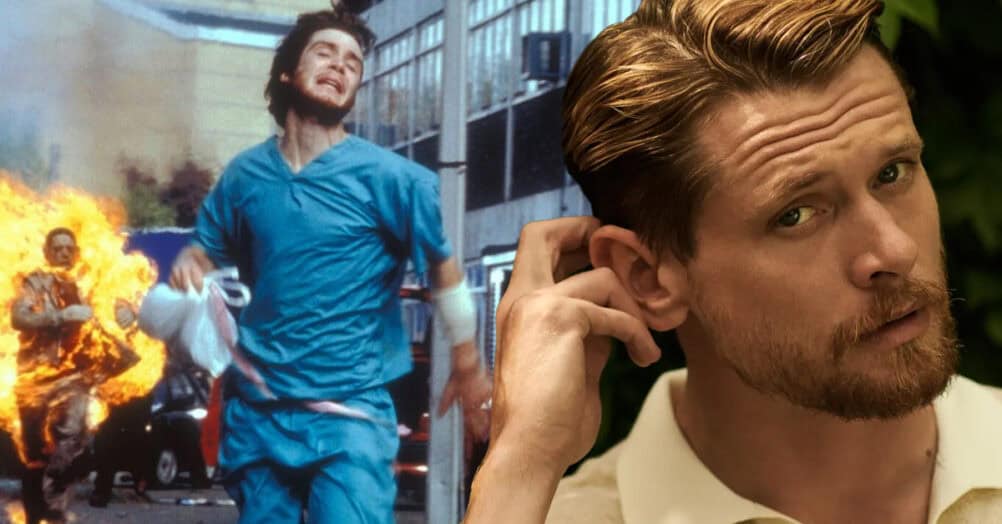
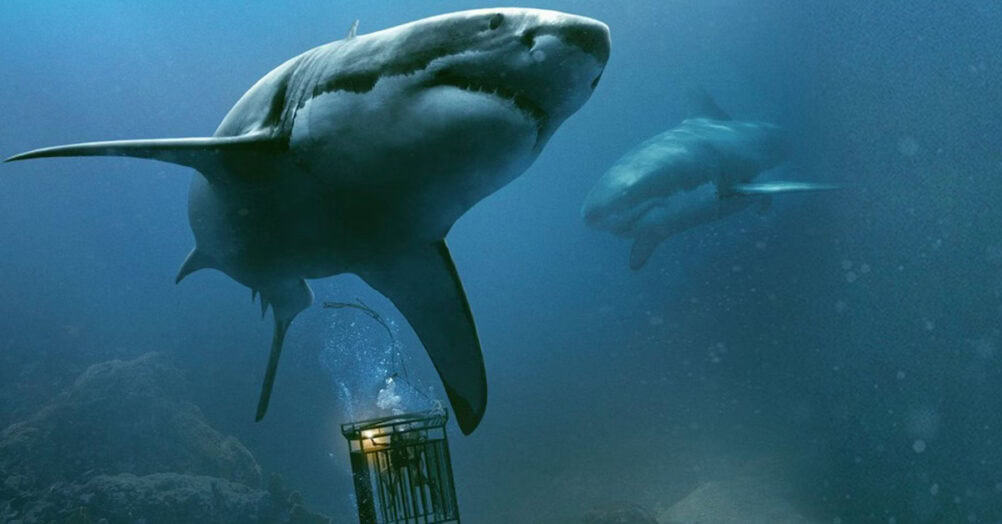
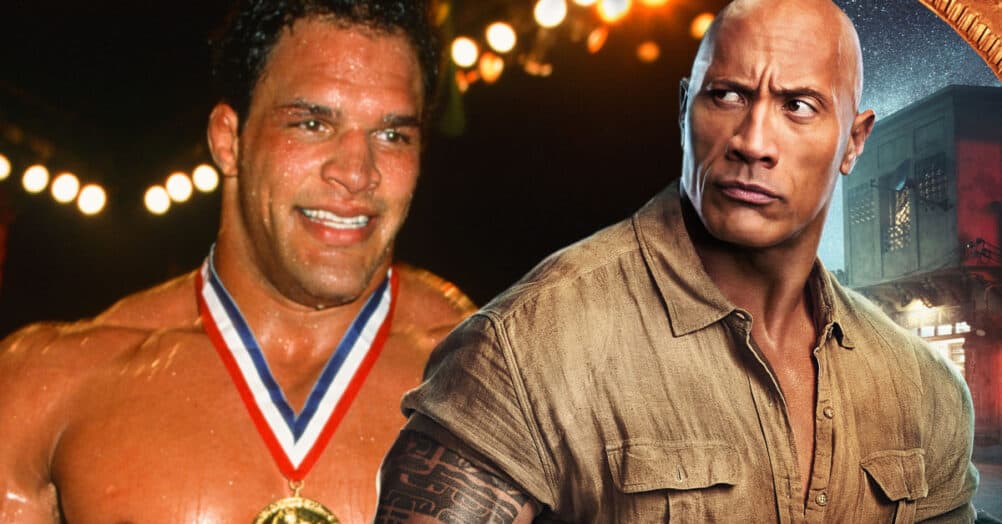
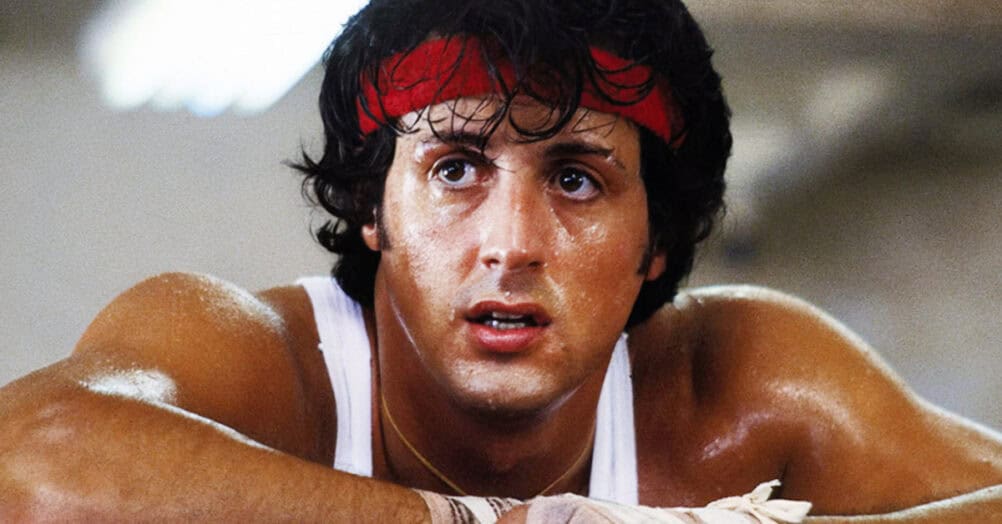
Follow the JOBLO MOVIE NETWORK
Follow us on YOUTUBE
Follow ARROW IN THE HEAD
Follow AITH on YOUTUBE